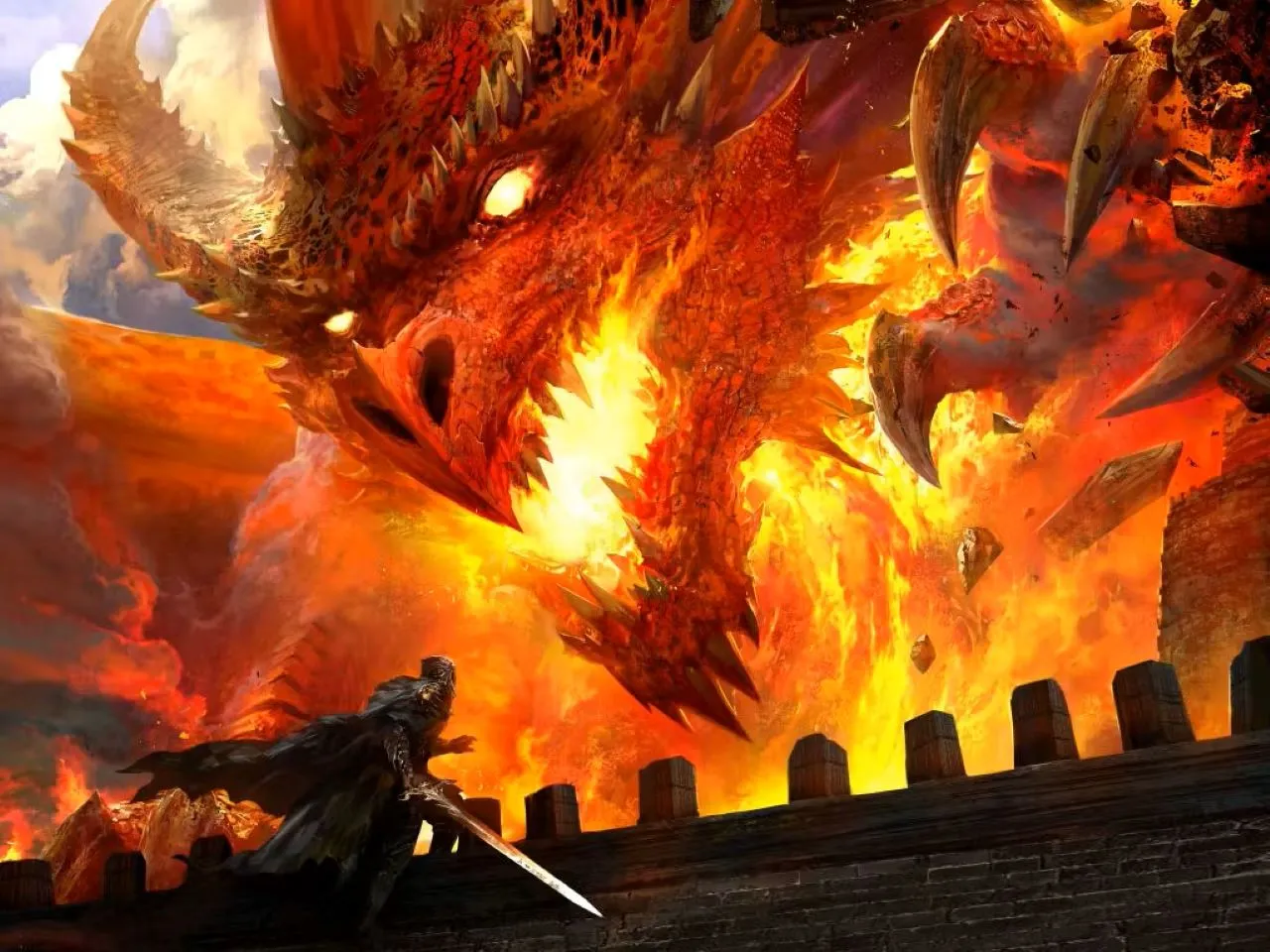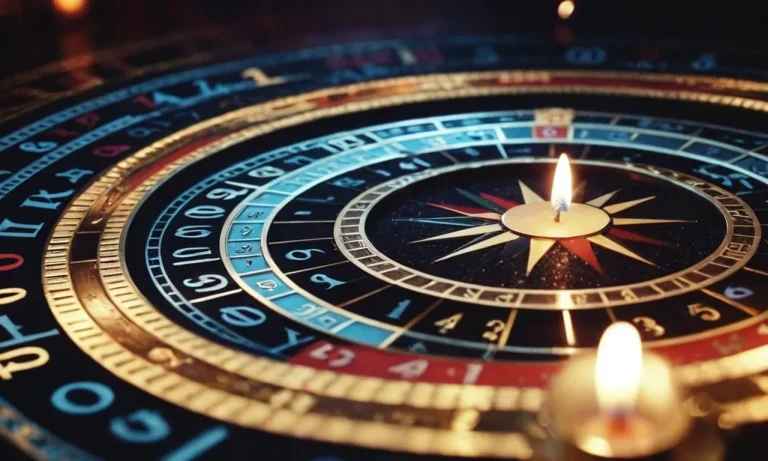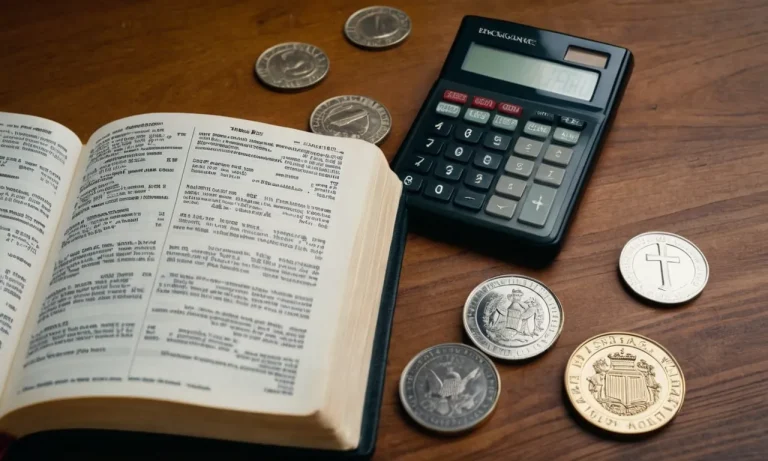Christianity And Dungeons & Dragons: Are They Compatible?
Dungeons & Dragons, the iconic fantasy tabletop role-playing game, has faced controversy among some Christian groups over concerns about its themes of magic and paganism. However, many Christians play D&D and feel it aligns with their faith.
This comprehensive guide examines Christianity and D&D from all angles.
If you’re short on time, here’s the quick answer: Most major Christian denominations do not forbid D&D, though some evangelicals criticized it in the 1980s over magic use. Most Christians see fantasy games as harmless entertainment, though some avoid D&D over personal convictions.
History of Controversy Over D&D in Christian Circles
The relationship between Christianity and Dungeons & Dragons (D&D) has been a topic of controversy for several decades. Christian circles have expressed concerns over the game’s content, themes, and potential influence on players.
This section explores the history of this controversy and the reasons behind it.
1980s Satanic Panic
In the 1980s, a phenomenon known as the “Satanic Panic” swept through the United States, fueled by fears of occultism and satanic rituals. During this time, Dungeons & Dragons became a target of criticism among conservative Christian groups.
Some individuals claimed that the game promoted satanism and witchcraft, leading to moral corruption and even possession by evil spirits.
While these claims were largely unfounded, they gained traction in the media, resulting in widespread concern and backlash against D&D. The game was seen as a gateway to the occult and a threat to the values and beliefs held by many Christians.
Concerns Over Magic and Pagan Themes
Another major area of concern for Christians regarding Dungeons & Dragons is its inclusion of magic and pagan themes. Some Christians argue that engaging in fictional magic, even within the context of a game, goes against biblical teachings that caution against witchcraft and sorcery.
Furthermore, the presence of gods and deities from various mythologies in the game raises concerns about potential idolatry and the blurring of theological boundaries.
These concerns are not limited to D&D alone but also extend to other forms of media and entertainment that involve magic or pagan elements. Many Christians believe that such content can influence individuals’ beliefs and practices, leading them away from their faith.
It’s important to note that not all Christians view D&D in a negative light. Some argue that the game can be enjoyed responsibly, as long as players maintain a strong grounding in their faith and do not let the game’s themes negatively impact their beliefs and values.
Ultimately, the compatibility of Christianity and Dungeons & Dragons is a matter of personal belief and interpretation. Christians who are interested in playing the game are encouraged to engage in open dialogue with their religious leaders, study biblical teachings, and make informed decisions based on their own convictions.
Official Positions of Christian Denominations
Catholic Church
The Catholic Church has not issued an official statement specifically addressing the compatibility of Christianity and Dungeons & Dragons. However, in general, the Church encourages its members to exercise discernment when engaging in media and entertainment activities.
It emphasizes the importance of avoiding anything that promotes occult practices or undermines Christian values.
It is worth noting that some individual Catholic priests and theologians have expressed concerns about Dungeons & Dragons due to its use of magic and fantasy elements. They argue that it may promote a worldview that conflicts with Christian beliefs.
However, these concerns are not universally held within the Catholic Church.
Southern Baptist Convention
The Southern Baptist Convention has taken a more explicit stance on the compatibility of Christianity and Dungeons & Dragons. In a resolution passed in 1980, the Convention expressed concerns about the game’s potential influence on young people.
The resolution stated that Dungeons & Dragons “could well open the door to potential involvement in the occult, and could lead to the destruction of one’s Christian testimony.” It urged parents and church leaders to be cautious and discerning when it comes to allowing participation in the game.
Assemblies of God
The Assemblies of God, a Pentecostal denomination, has also addressed the issue of Christianity and Dungeons & Dragons. In a position paper on media and entertainment, the denomination acknowledges that the game contains elements of fantasy and magic.
However, it emphasizes that the key concern should be the player’s attitude and approach towards the game. The Assemblies of God advises individuals to carefully consider whether their involvement in Dungeons & Dragons aligns with their Christian beliefs and values.
While the official positions of these Christian denominations provide guidance, it is important to note that individual beliefs and interpretations may vary within each denomination. Ultimately, Christians are encouraged to prayerfully consider their own convictions and seek wise counsel from their church leaders.
Christian Arguments For and Against Playing D&D
Reasons Some Christians Avoid D&D
While Dungeons & Dragons (D&D) has gained immense popularity over the years as a fantasy role-playing game, there are some Christians who choose to avoid it due to various reasons. One of the main concerns raised by these Christians is the presence of occult themes and imagery in the game.
They argue that D&D promotes the use of magic, witchcraft, and other supernatural elements that go against their beliefs.
Additionally, some Christians believe that playing D&D can lead to a blurring of lines between fantasy and reality. They worry that immersing oneself in a game where players create and control fictional characters in a make-believe world may lead to a detachment from real life and a prioritization of fantasy over reality.
They argue that this can be spiritually damaging and hinder one’s ability to live a godly life.
Furthermore, there are Christians who have concerns about the potential for D&D to become addictive or to consume too much time and attention. They caution that excessive involvement in the game can lead to neglecting important responsibilities and relationships, which goes against biblical teachings.
It is important to note that these concerns are not universally held among Christians, and individuals’ beliefs and convictions may vary.
Why Most Christians Are Fine With D&D
On the other hand, the majority of Christians do not see playing D&D as inherently incompatible with their faith. They argue that D&D is simply a form of entertainment, and as long as it is approached with discernment and moderation, it does not pose any spiritual threat.
Many Christians who enjoy playing D&D argue that the game can actually provide opportunities for moral decision-making and exploring themes of good versus evil. They believe that engaging in a fictional world where players must make choices and face consequences can help develop critical thinking skills and promote discussions about ethical dilemmas.
Moreover, some Christians see playing D&D as a way to connect with others and build relationships. They view it as a social activity that allows for bonding and shared experiences, similar to playing board games or participating in sports.
Ultimately, the question of whether Christianity and D&D are compatible largely depends on an individual’s personal beliefs and convictions. It is important for Christians to prayerfully consider their own values and the potential impact of participating in any form of entertainment, including D&D.
Tips for Reconciling Faith and D&D
Many Christians enjoy playing Dungeons & Dragons (D&D), but sometimes they may struggle with reconciling their faith with the game’s themes of magic and fantasy. Here are some helpful tips for finding a balance and enjoying both your faith and D&D:
Avoid Occult Classes and Magic
One way to navigate the potential conflict between Christianity and D&D is to avoid playing characters that delve into occult practices or rely heavily on magic. Instead, focus on classes that promote noble virtues and do not involve dark or supernatural powers.
This can help align your gameplay with your faith and prevent any discomfort or conflict.
Focus on Heroic Deeds
Another approach is to emphasize the heroic and virtuous aspects of the game. In D&D, players have the opportunity to make choices and take actions that align with their personal values. By focusing on performing good deeds, helping others, and fighting for justice, you can infuse your gameplay with a strong moral compass that reflects your Christian beliefs.
Emphasize Fellowship
One of the core aspects of Christianity is the importance of community and fellowship. You can bring this element into your D&D sessions by prioritizing teamwork and cooperation with your fellow players.
This not only strengthens the bonds between players but also fosters a positive and supportive gaming environment that aligns with Christian values.
Remember, each individual’s journey of faith is unique, and what works for one person may not work for another. It’s important to have open and honest discussions with your fellow players about your beliefs and concerns.
Ultimately, finding a way to reconcile your faith and your enjoyment of D&D can lead to a fulfilling and enriching gaming experience.
Conclusion
Most major Christian denominations do not forbid playing Dungeons & Dragons, though some believers criticize its magic themes. While a minority avoid D&D for spiritual reasons, most Christians view fantasy games as harmless fun and an opportunity for creativity.
With wisdom, even conservative Christians can enjoy D&D in ways that align with their faith.








